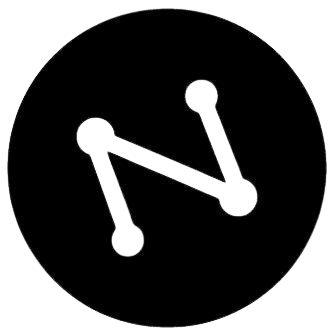
Medicine and the health professions have been present throughout human history. Beyond scientific discoveries, great doctors, nurses, and researchers also left powerful quotes that express ethics, empathy, vision for the future, and commitment to care. These quotes cross generations and continue to inspire those on the front lines of patient care today.
If you are a physician, clinic manager, student, or health professional, knowing these quotes helps you reconnect with the purpose of your work amid a busy routine, targets, shifts, and daily challenges. Below, we’ve gathered quotes from healthcare professionals who made history—and who can still guide clinical decisions, humanize care, and strengthen the culture of health organizations.
Why quotes from healthcare professionals are still so relevant
Quotes from doctors, nurses, and scientists usually emerge from real contexts of pain, discovery, and transformation. They reflect values that remain essential in modern clinical practice, such as:
- Humanizing care: seeing the patient beyond the disease.
- Ethical responsibility: understanding that clinical decisions affect lives and families.
- Science with purpose: using technical knowledge to serve society.
That’s why these quotes are not just “social media material.” They can be used in team meetings, training sessions, classes, clinic wall displays, and institutional materials to reinforce the culture and purpose of the organization.

Quotes from healthcare professionals who marked history
Florence Nightingale: the foundation of modern nursing
British nurse Florence Nightingale is considered the founder of modern nursing and became known for her work in the Crimean War. She was a pioneer in implementing hygiene practices and handwashing in military hospitals at a time when these measures were not yet valued.
Her work not only saved countless lives but also launched a new way of organizing care. In 1860, she created a milestone for contemporary nursing by founding the School of Nursing at St. Thomas’ Hospital in London.
Memorable quote:
“The very first requirement in a hospital is that it should do the sick no harm.”
— Florence Nightingale
This quote is especially relevant for those working with patient safety, risk management, infection control, protocols, and quality of care.
Elizabeth Blackwell: a pioneer woman in medicine
Elizabeth Blackwell, born February 3, 1821, was the first woman to graduate and practice medicine in the United States. Her interest in medicine arose after her father’s death, and in 1849 she became the first woman in the country to receive a medical degree.
Blackwell became close friends with Florence Nightingale and, together with Nightingale and her sister Emily Blackwell, helped create the Women’s Medical College. She also took part in organizing the National Health Society and co-founded the London School of Medicine for Women, opening doors for generations of female physicians around the world.
Memorable quote:
“The idea of winning a doctor’s degree gradually assumed the aspect of a great moral struggle, and the moral fight possessed immense attraction for me.”
— Elizabeth Blackwell
This quote inspires those who face gender barriers and reinforces the idea of medicine as a calling, not just a profession.
Hippocrates: the oath that crosses centuries
Hippocrates is often regarded as one of the most important figures in the history of medicine. A member of a family of Asclepiads, he stood at the forefront of a tradition that had practiced health care for generations.
In the so-called Hippocratic writings, we find clinical descriptions of diseases such as malaria, mumps, pneumonia, and tuberculosis. Hippocrates founded the Hippocratic School of Medicine, which helped establish medicine as a structured discipline of study, separating it from purely mystical explanations.
He is also associated with the Hippocratic Oath, an ethical commitment taken by physicians at the end of their training.
Memorable quote:
“It is more important to know what sort of person has a disease than to know what sort of disease a person has.”
— Hippocrates
In times of technology, protocols, and high demand, this quote reminds us that medicine is, above all, centered on human beings.
Sigmund Freud: between neurology and psychoanalysis
Sigmund Schlomo Freud was a neurologist and psychiatrist, and one of the most influential historical figures of the 20th century. He is considered the father of psychoanalysis, a method of investigation and clinical practice that revolutionized our understanding of the human mind.
At first, Freud used hypnosis to treat patients with hysteria. Influenced by Charcot, he developed the hypothesis that hysteria had a psychological cause rather than just an organic one. His biopsychosocial view of human beings had a profound impact on psychology and psychiatry.
Memorable quote:
“The enigmas of the universe only gradually reveal themselves to our investigation. […] Scientific work is the only road which can lead us to a knowledge of reality outside ourselves.”
— Sigmund Freud
This quote is a reminder of the importance of research, science, and humility when dealing with the complexity of the mind and human behavior.
William Osler: the patient at the center of care
Canadian physician William Osler, born in 1849 and graduated from McGill University in Montreal, is frequently cited as one of the icons of modern medicine. A professor at Johns Hopkins Hospital’s School of Medicine, he advocated bedside teaching, close to the patient.
For Osler, the practice of medicine was an art, not just a technical or business activity. He emphasized that the physician’s heart should be exercised just as much as their mind.
Memorable quote:
“The good physician treats the disease; the great physician treats the patient who has the disease.”
— William Osler
This quote connects directly with patient-centered care, patient experience, and the humanization of healthcare.
Joseph Frank Payne: medicine as the act of helping
Joseph Frank Payne (Frank Payne) was born in 1840, the son of teachers, and became an English physician and historian of medicine. He studied at St. George’s Hospital in London and graduated from Oxford in 1867.
Throughout his career, he published works on pathology, epidemiology, dermatology, and the history of medicine, combining clinical practice with a thoughtful look at the field’s development.
Memorable quote:
“The basis of medicine is sympathy and the desire to help others, and whatever is done with this end must be called medicine.”
— Frank Payne
This quote captures the spirit of service that underlies the work of multidisciplinary teams, from outpatient clinics to large hospitals.
Paracelsus: between alchemy and science
Paracelsus, pseudonym of Philippus Aureolus Theophrastus Bombastus von Hohenheim, was a Swiss-German physician, alchemist, physicist, astrologer, and occultist. He is credited with coining the name of the element zinc, calling it zincum.
He graduated in medicine from the University of Vienna in 1510, still very young, and likely obtained his doctorate from the University of Ferrara a few years later. Paracelsus tirelessly sought new remedies and ways to improve therapy, helping to move medicine away from the purely scholastic approach of his time and toward a more scientific path.
Memorable quote:
“The dose makes the poison.”
— Paracelsus
This quote remains extremely current in pharmacology, drug therapy, and patient safety.
Aloysius Sieffert: caring for the human mind
Aloysius Sieffert was a German physician who practiced medicine in Evansville, a city in the U.S. state of Indiana. The quote attributed to him was found in a notebook entry dated 1858 and reveals a sensitive perspective on mental health at a time when the topic received little attention.
Memorable quote:
“The care of the human mind is the most noble branch of medicine.”
— Aloysius Sieffert
For professionals in psychiatry, psychology, neurology, and related fields, this quote highlights the impact of mental health on people’s lives.
Ivo Pitanguy: a global reference in plastic surgery
Ivo Hélcio Jardim de Campos Pitanguy was a Brazilian plastic surgeon, professor, and writer, and a member of the National Academy of Medicine and the Brazilian Academy of Letters. Considered one of the greatest plastic surgeons in the world, he passed away in August 2016.
Author of more than 900 papers published in national and international journals, he helped establish Brazilian plastic surgery as a global reference. The international press referred to him as “the king of plastic surgery” and the “Michelangelo of the scalpel.”
Memorable quote:
“We know the fallacies of medicine. The physician knows his universe and is aware that he is faced with the imponderable. We doctors should not be afraid of medicine.”
— Ivo Pitanguy
A powerful reflection for those who deal daily with expectations, risks, outcomes, and the limits of science.
Jacinto Convit: science in the service of society
Jacinto Convit García was a Venezuelan physician and scientist recognized for his studies on leprosy, leishmaniasis, Chagas disease, and research on vaccines for different types of cancer.
Convit became known for his nonprofit practice and humanitarian approach. In 1988, he was nominated for the Nobel Prize in Medicine for his progress on the leprosy vaccine. Even at 98 years old, in 2011, he was still leading research teams at the Institute of Biomedicine, working on vaccines against breast, stomach, and cervical cancer.
Memorable quote:
“Working in healthcare is a principle: it allows you to be useful to society with all the strength and knowledge you have. This service to society must be the consequence of vocation and commitment at graduation.”
— Jacinto Convit
This quote captures the spirit of social responsibility that underpins public health, research, and clinical care.
How to use these quotes in your clinic’s daily routine
These quotes can go far beyond inspiring reading. In practice, clinic managers and healthcare professionals can use them to:
- Strengthen organizational culture: display them on internal walls, presentations, team training sessions, and alignment meetings.
- Educate and engage teams: use the quotes as a starting point for discussions on ethics, humanization, patient safety, and clinical best practices.
- Communicate with patients: when used with sensitivity, they can appear in institutional materials, newsletters, or the clinic’s social media, reinforcing empathy and purpose.
By remembering the stories behind these quotes, health professionals reconnect with the calling that brought them into the field and gain more clarity when making difficult decisions in everyday practice.

